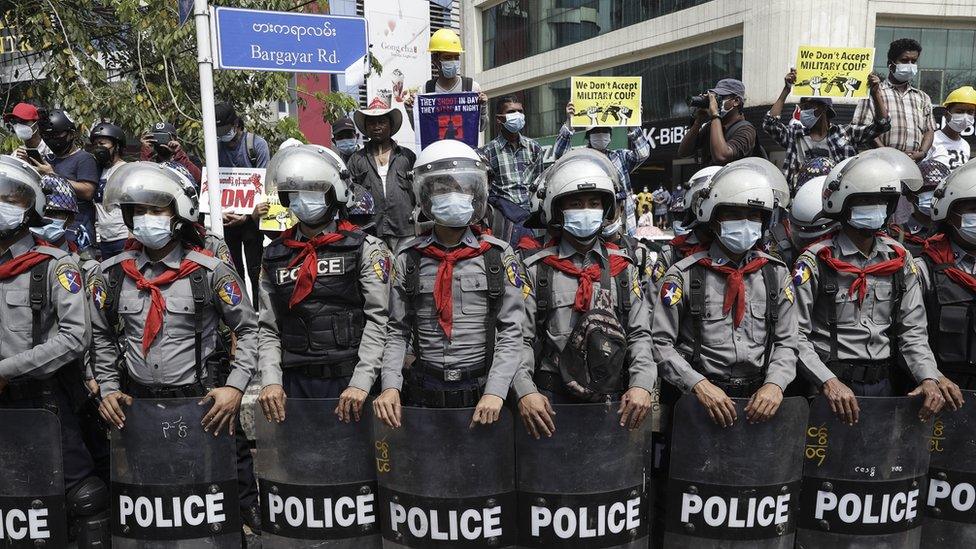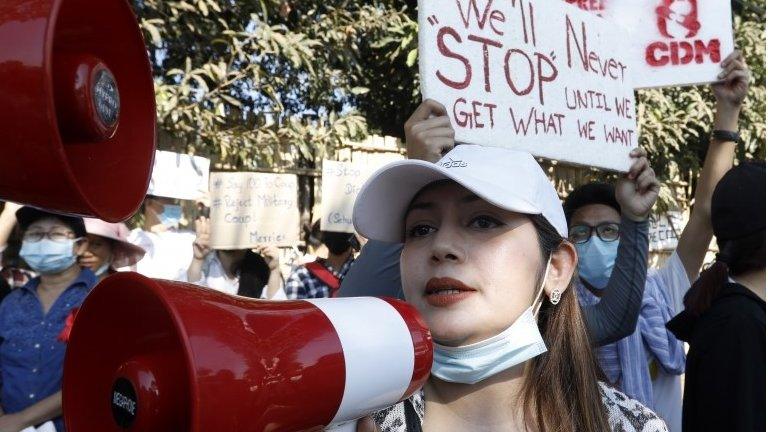Myanmar coup: UK imposes sanctions on three generals
- Published

Hundreds of thousands of people have protested across Myanmar since the coup
The UK has announced asset freezes and travel bans on three generals in Myanmar over the military coup earlier this month.
Foreign Secretary Dominic Raab said the sanctions would "hold the Myanmar military to account for their violations of human rights".
The UK will also put in place new measures to prevent UK aid indirectly helping the military regime.
It comes after the US imposed sanctions on the coup leaders last week.
The military seized control on 1 February following a landside general election victory for the party of the country's elected leader, Aung San Suu Kyi.
Ms Suu Kyi has been detained along with members of her party, with the military back in charge and declaring a year-long state of emergency.
Sanctions will be imposed on defence minister General Mya Tun Oo, home affairs minister Lt General Soe Htut and deputy home affairs minister Lt General Than Hlaing.
The new action comes on top of UK sanctions previously in place against 16 individuals from the Myanmar military.
The Foreign Office said the action was being taken "in tandem" with Canada - which has also announced its own action against the new regime.
Mr Raab said: "The UK condemns the military coup and the arbitrary detention of Aung San Suu Kyi and other political figures.
"We, alongside our international allies, will hold the Myanmar military to account for their violations of human rights and pursue justice for the Myanmar people."
'Not good enough'
In response, Labour's shadow Foreign Office minister Stephen Kinnock called the latest sanctions on military officials a "step in the right direction".
But he added the action was "still not good enough," adding the UK government should also target firms in Myanmar that "bankroll" the military.
British ministers have previously faced criticism from the opposition party for not imposing sanctions on military figures in the immediate aftermath of the coup.
During a Commons debate the day after, Foreign Office Minister Nigel Adams had said the UK would work with international allies to "consider next steps in that regard".
Myanmar, also known as Burma, is a former British colony which gained its independence in 1948.
It was ruled by the armed forces from 1962 until 2011, when a new government began ushering in a return to civilian rule.
Related topics
- Published11 February 2021
